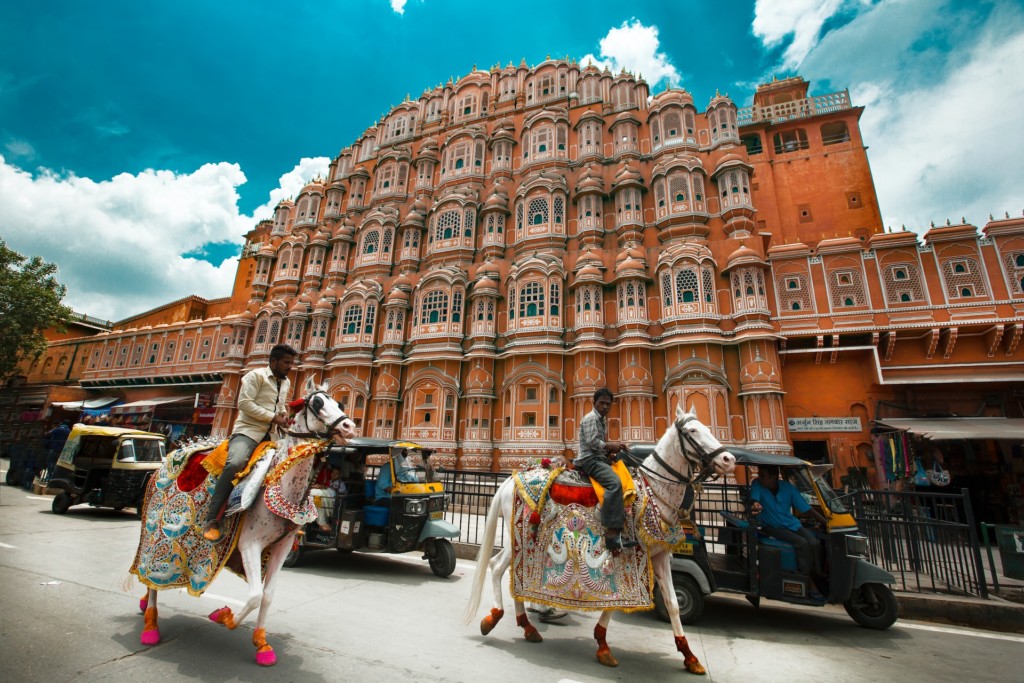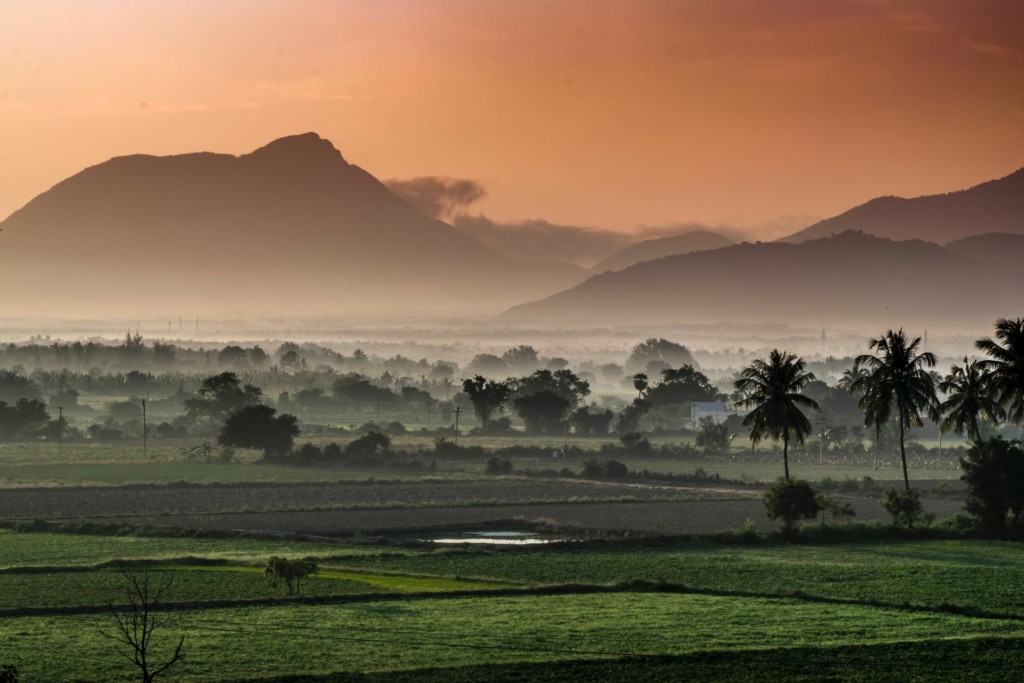Are you ready to explore India and all it has to offer? India is a vibrant country with rich culture, interesting history, and unique experiences. To make traveling easier, Indian authorities decided to introduce an electronic visa program. The India eVisa gives visitors easy access to this stunning country.
In this article, you’ll find the most important information on the Indian online visa. This short guide describes the visa application process and highlights what documents are essential for your visa to be approved. It also provides more information about the guaranteed validity period and available visa types.
What is the eVisa to India?
The India eVisa is an electronic visa obtainable through an online application. It can be issued to all eligible foreigners for short-term travel related to tourism, business, or medical treatment. The Indian online visa may also be obtained for transit.
Depending on the selected India visa type, your visa will remain valid for a specific period of time. Different visas also allow you to pursue different activities abroad – from enjoying a sightseeing tour to concluding international contracts.
In order to apply online for the Indian eVisa, you need to follow three easy steps – fill in the application form with personal details, upload the required documents in digital form, and make the visa fee payment.
After a few days of visa processing, you’ll receive the approved Indian eVisa to your e-mail address. Don’t forget to print it out prior to the travel. On arrival to India, you must present a paper copy of your visa.
The Indian visa requirement does not apply to nationals of Bhutan and Nepal. Citizens of these countries can enjoy visa-free travel to India without any time limits for their stay abroad.

What are the available types of Indian eVisa?
As for now, there are five types of available visas for India. Depending on the activities you plan for the journey and the time you’d like to spend abroad, select a suitable visa type during the application process.
- Tourism eVisa (30 days) – double entry visa issued for travel related to tourism purposes, valid for 30 days from the date of issue, allowing you to spend up to 30 days in India.
- Tourism eVisa (1 year) – multiple-entry visa allowing eligible travelers to meet with relatives, participate in cultural events, or enjoy holidays abroad, remains valid for an entire year.
- Tourism eVisa (5 years) – multiple-entry visa issued for visitors planning to enjoy tourism, leisure, and sightseeing in India, effective for 5 years, with each visit lasting up to 90 days.
- Business eVisa – multiple-entry visa required for travel related to conducting negotiations, participating in business conferences, and concluding contracts, valid for 1 year with 180 days spent in India.
- Medical eVisa – multiple-entry visa issued for visitors who plan to undergo medical treatment in India, valid for 4 months with visits to India for up to 60 days in total, consecutively or spread over 3 visits.

How to apply for an Indian eVisa?
For your Indian visa application to be hassle-free, make sure you won’t face any technical difficulties. It’s highly recommended to ensure your laptop (or smartphone) is working correctly and is connected to the Internet.
The Indian eVisa application process can be divided into three easy steps:
- Fill in the visa registration form – provide personal data and travel details.
- Submit the required documents – your documents should be in PDF form.
- Pay for the visa processing fee – use a credit card, debit card, or PayPal.
When your visa is authorized, it’ll be delivered directly to your e-mail inbox. Once you have your online visa, remember to print it out. On arrival to India, you’ll be asked to present your valid passport and your approved visa to border customs officers.

What documents are required for an Indian eVisa?
Preparing for the India visa remote registration, remember to collect all the essential documentation first. Without uploading the documents, you won’t be able to complete the application.
The documents required for the Indian eVisa application include the following:
Tourism eVisa
- copy of bio-data page from the applicant’s passport
- applicant’s biometric photograph
Business eVisa
- copy of bio-data page from the applicant’s passport
- applicant’s biometric photograph
- invitation letter from the Indian company
- business card of the Indian company
Medical eVisa
- copy of bio-data page from the applicant’s passport
- applicant’s biometric photograph
- official declaration from the Indian medical institution

How much does the India eVisa cost?
Depending on the India visa type you have chosen in the online application, you’ll be required to cover a different visa fee. The price depends mostly on the guaranteed validity period and the granted number of entries.
- Tourism eVisa (30 days) – 79 EUR
- Tourism eVisa (1 year) – 129 EUR
- Tourism eVisa (5 years) – 149 EUR
- Business eVisa – 149 EUR
- Medical eVisa – 129 EUR
There are a few methods of online payment that you can choose from. Usually, customers prefer covering the processing fee using their credit card, debit card, or PayPal. However, there are also other options you can choose.
What is the average processing time for an India eVisa?
The Indian visa online application is effortless and uncomplicated – you can complete the entire procedure from the comfort of your home. Moreover, it shouldn’t take more than 20 minutes of your free time.
While waiting for the visa approval notice to be sent to your e-mail address, be patient. The average waiting time is a few business days, but the processing may be prolonged depending on the Indian Government’s decision.
Is a visa required for transit through India?
If you plan on passing through India while traveling to another destination, you don’t need to apply for a separate Transit Visa as long as you have an onward travel ticket. You also cannot leave the airport transit area and your transit cannot exceed 24 hours. Otherwise, a Transit Visa is required for your travel. It can be easily obtained online.
Who can apply for India eVisa online?
Below, you can find a detailed list of all countries whose citizens can apply online for the Indian eVisa.
- Albania
- Andorra
- Angola
- Anguilla
- Antigua and Barbuda
- Argentina
- Armenia
- Aruba
- Australia
- Austria
- Azerbaijan
- Bahamas
- Barbados
- Belarus
- Belgium
- Belize
- Benin
- Bolivia
- Bosnia and Herzegovina
- Botswana
- Brazil
- Brunei
- Bulgaria
- Burundi
- Cambodia
- Cameroon
- Canada
- Cape Verde
- Chile
- Colombia
- Comoros
- Cook Islands
- Costa Rica
- Croatia
- Cuba
- Cyprus
- Czech Republic
- Denmark
- Djibouti
- Dominica
- Dominican Republic
- Ecuador
- El Salvador
- Equatorial Guinea
- Eritrea
- Estonia
- Fiji
- Finland
- France
- Gabon
- Gambia
- Georgia
- Germany
- Ghana
- Greece
- Grenada
- Guatemala
- Guinea
- Guyana
- Haiti
- Honduras
- Hungary
- Iceland
- Indonesia
- Ireland
- Israel
- Italy
- Ivory Coast
- Jamaica
- Japan
- Jordan
- Kazakhstan
- Kenya
- Kiribati
- Kyrgyzstan
- Laos
- Latvia
- Lesotho
- Liberia
- Liechtenstein
- Lithuania
- Luxembourg
- Macedonia
- Madagascar
- Malawi
- Malaysia
- Mali
- Malta
- Marshall Islands
- Mauritius
- Mexico
- Moldova
- Monaco
- Mongolia
- Montenegro
- Mozambique
- Myanmar
- Namibia
- Netherlands
- New Zealand
- Niger
- Niue
- Norway
- Oman
- Palau
- Palestine
- Panama
- Papua New Guinea
- Paraguay
- Peru
- Philippines
- Poland
- Portugal
- Romania
- Russia
- Rwanda
- Samoa
- San Marino
- Saudi Arabia
- Senegal
- Serbia
- Seychelles
- Sierra Leone
- Singapore
- Slovakia
- Slovenia
- Solomon Islands
- South Africa
- South Korea
- Spain
- Sri Lanka
- Suriname
- Swaziland
- Sweden
- Switzerland
- Taiwan
- Tajikistan
- Tanzania
- Thailand
- Timor-Leste
- Togo
- Tuvalu
- Uganda
- Ukraine
- United Arab Emirates
- United Kingdom
- United States
- Uruguay
- Uzbekistan
- Vanuatu
- Vatican City
- Venezuela
- Vietnam
- Zambia
- Zimbabwe
Which entry ports accept the India eVisa?
Remember that not all ports of entry accept electronic visas. Before leaving for India, it’s recommended to check if the entry port of your choice approves India e-Visa.
Airports:
- Ahmedabad
- Amritsar
- Bagdogra
- Bengaluru
- Bhubaneshwar
- Calicut
- Chandigarh
- Chennai
- Cochin
- Coimbatore
- Delhi
- Gaya
- Goa
- Guwahati
- Hyderabad
- Jaipur
- Kolkata
- Lucknow
- Madurai
- Mangalore
- Mumbai
- Nagpur
- Portblair
- Pune
- Tiruchirapalli
- Trivandrum
- Varanasi
- Vishakhapatnam
Seaports:
- Chennai
- Cochin
- Goa
- Mangalore
- Mumbai



Comments
0 comments